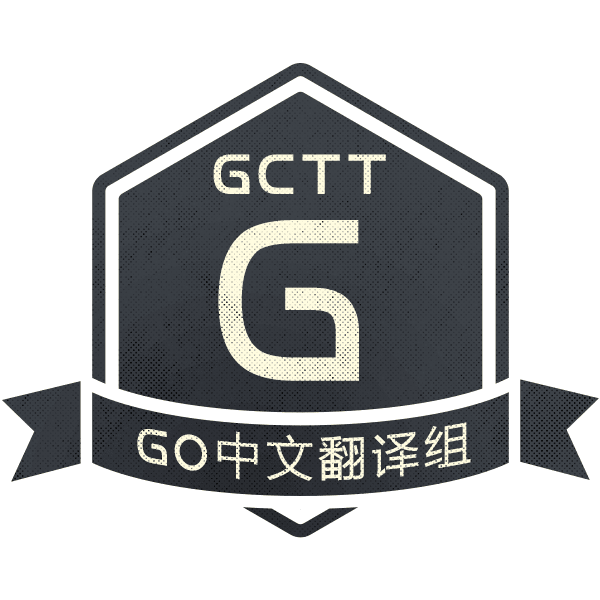 插图由创作原始 Go Gopher 作品的 Renee French 为“ Go的旅程”创作。
插图由创作原始 Go Gopher 作品的 Renee French 为“ Go的旅程”创作。
本文基于 Ebiten 1.10。
Ebiten 是由 Hajime Hosh 用 Go 语言编写的成熟的 2D 游戏库。它是 Apple Store 上一些手机游戏如 Bear's Restaurant 或桌面游戏如 OpenDiablo2 的引擎,OpenDiablo2 是 Go 版本暗黑2 的开源实现。现在,让我们深入了解电子游戏中的一些基本概念以及它们在 Ebiten 中的实现。
动画制作
在电子游戏世界中,Ebiten 通过分离的静态图像来渲染动画。这些图像集合被组合成一个更大的图像,通常称为“纹理图集”,也称为“精灵图”。这是 网站 上提供的示例:

然后,经过简单的数学运算,这张图被加载到内存中,然后被一部分一部分地渲染。在前面的示例中,每个部分的宽度为 32 个像素。渲染每个图像非常简单,只需将 X 坐标移动 32 个像素。这是第一步:


渲染动画时,只需要当前图像的值即可渲染精灵图的正确部分。Ebiten 提供了所有的 API 来轻松地渲染它,下面是之前第一步中精灵图的示例:
screen.DrawImage(
// 在坐标上绘制子画面的子图像
// x=0 to x=32 and y=32 to y=64
runnerImg.SubImage(image.Rect(0, 32, 32, 64)).(*ebiten.Image),
// 在该位置之前声明的变量定义了屏幕上的位置
op,
)
Ebiten 的创建者 Hajime Hosh 还开发了“ file2byteslice”,该工具可将任何图像转换为字符串,并允许将任何文件嵌入到 Go 中。它可以通过注释 go:generate 与 Go 工具轻松集成,自动将图像转储到 Go 文件中。下面是一个例子:
//go:generate file2byteslice
-package=img
-input=./images/sprite.png
-output=./images/sprite.go -var=Runner_png
现在可以从以下代码的 img.Runner_png 变量中获取精灵图:

然后,必须先对图像进行解码,然后再由 Ebiten 加载并在游戏中进行渲染。让我们转到另一种渲染较大背景图像的方法,该图像由循环元素组成。
瓷砖背景
渲染背景使用相同的技术,将主要地图集分为许多小图像,称为“瓷砖”。这是网站上提供的纹理图集的示例:

该图集可以被 16 像素的图块分割 ,这是使用 Tiled 软件创建的图块集合:

每个图块将分配一个数字,从 0 开始,逐次加 1。由于每行都有相同数量的图块,因此可以通过除法和取模来获取图块的坐标。这是蓝色花朵的示例:

蓝色花朵的编号为 303,这意味着它们位于第 4 列(303 以每行的图块数为模,例如 303%25 = 3)和第 13 行(303 除以每行的图块数,例如,303/25 = 12)。
现在,我们可以使用索引数组来构建地图:

从这张地图上绘制图像可以得到主要装饰:

但是缺少背景。我们必须构建一个表示背景的类似数组。结果如下:

现在,这些图层已经准备好了,我们只需要迭代两个图层就可以得到最终结果:

此示例中的代码可在 Ebiten 网站 上找到。
生成图像后,Ebiten 必须管理屏幕更新并将指令发送到图形卡片。
屏幕更新
Ebiten 提供了 iOS(使用 Metal)和 Android(使用 OpenGL ES)使用的驱动程序的抽象,这使开发更加容易。它还允许您定义一个函数,该函数可以更新屏幕并绘制所有更改。但是,出于性能原因,该库会将源打包在一起,并将这些更改存储在缓冲区中,然后再发送给驱动程序:

该缓冲区还能够合并绘图指令,以减少对 GPU 的调用次数。在上图中,这三个指令现在可以合并为一个:

这项改进很重要,因为它可以减少发送指令时的开销。这是合并指令的性能:

通过逐个发送指令,性能会大大降低:

Ebiten 还提供了对屏幕刷新的控制,这有助于调整性能。
TPS 管理
Ebiten 的默认 TPS 是 60。但是,这可以用 Ebiten 提供的 API ebiten.SetMaxTPS() 来轻松配置。它有助于减少机器上的压力。这是具有 25 TPS 的简单程序:

TPS(每秒 tick 数)与 FPS(每秒帧数)不同。Hajime Hosh 很好地描述了这些差异:
帧代表图形更新。这取决于用户显示屏上的刷新率。那么 FPS 可能是 60、70、120,依此类推。这个数字基本上是不可控制的。Ebiten 可以打开或关闭 vsync。如果关闭了 vsync,则 Ebiten 会尝试尽可能多地更新图形,那么 FPS 可以为 1000 左右。 tick 表示逻辑更新。TPS 表示每秒调用更新功能的次数。默认情况下固定为 60。游戏开发人员可以通过 SetMaxTPS 配置 TPS。如果设置了 UncappedTPS,则 Ebiten 会尝试尽可能多地调用更新函数。
当窗口在后台运行时,Ebiten 为渲染带来了另一种优化。失去焦点时,游戏将进入休眠状态,直到重新获得焦点。它实际上 sleep 了 1/60 秒,然后再次检查焦点。这是保存的资源的示例:

尽管可以关闭此优化,但是运行的系统可能会限制游戏的运行。例如,在 Firefox,Chrome 或其他浏览器上的后台标签中运行时,在浏览器中运行的游戏会受到限制。
Ebiten 在 Github 上接受赞助。如果您希望看到更多 Go 编写的游戏,请随时贡献力量。
via: https://medium.com/a-journey-with-go/go-image-rendering-in-2d-video-games-with-ebiten-912cc2360c4f
作者:Vincent Blanchon 译者:alandtsang 校对:polaris1119
本文由 GCTT 原创翻译,Go语言中文网 首发。也想加入译者行列,为开源做一些自己的贡献么?欢迎加入 GCTT!
翻译工作和译文发表仅用于学习和交流目的,翻译工作遵照 CC-BY-NC-SA 协议规定,如果我们的工作有侵犯到您的权益,请及时联系我们。
欢迎遵照 CC-BY-NC-SA 协议规定 转载,敬请在正文中标注并保留原文/译文链接和作者/译者等信息。
文章仅代表作者的知识和看法,如有不同观点,请楼下排队吐槽
有疑问加站长微信联系(非本文作者))








